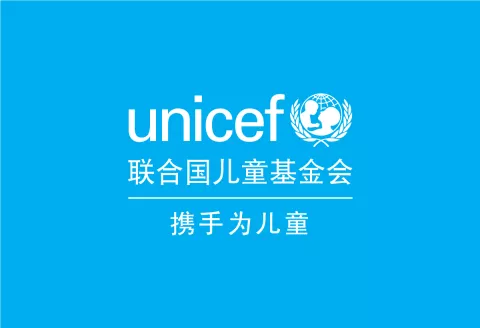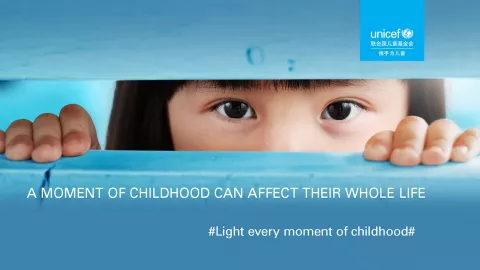Child sexual abuse: What every parent should know
Why children often remain silent
- Available in:
- 中文
- English
As societies become more and more familiar with children's rights it is often possible for certain children's issues that had previously gone unnoticed to come to the surface. Child sexual abuse is one of these issues. Sexual abuse of children is unfortunately an all too common problem found in all countries throughout the world. When children do not have access to critically important knowledge, skills and services set up to protect them from various forms of abuse, these problems often remain deeply hidden from view.
The emergence of a child rights sensitive society is one of the most important steps in shedding light on the problem of child sexual abuse. When children's voices are heard more often and given due weight and respect, it becomes easier for them to identify inappropriate behavior and to seek effective help. As long as children are not valued as full members of society, in their own right, they are at greater risk of various forms of violence, exploitation and abuse.
What is sexual abuse of children?
Child sexual abuse is defined as touching and other behaviors that make children feel confused, uncomfortable or bad. Examples of sexual abuse include: 1. Touching of the private body parts of the child; 2. Asking children to touch another person's private body parts; 3. Sexual intercourse with children; 4. Showing pictures or movies containing sexual or pornographic images to a child; 5. Speaking to a child about sexual or pornographic subjects, including jokes or stories.
In 2005 the Secretary General of the United Nations conducted global study on Violence against Children. Here are a number of suggestions which came from children themselves about protecting children from sexual abuse: 1. Perpetrators of sexual abuse against children should be punished; 2. Information hot-lines should be established for children to call and safely discuss issues related to sexual abuse; 3. Agencies should be established where children can report cases of sexual abuse and receive help; 4. Children should be taught how to protect themselves from sexual abuse at an early age.
Why do children sometimes remain silent when they are sexually abused?
- Children's understanding of sexual abuse is limited. Often they do not know if they have been sexually abused, or not;
- The perpetrator of sexual abuse threatens the child if they talk to others about what has happened;
- The perpetrator asks the child to keep the sexual abuse a secret;
- Children are afraid that nobody will believe the truth about what has happened to them;
- Children are afraid that they will be punished for doing something wrong;
- Children try to protect perpetrator from being punished;
- Children fear that their family will be broken apart if they talk about the abuse;
- Children fear losing gifts or favors that they may have been receiving from the perpetrator, such as toys, clothes, food, outings, money or even special attention.
In addition to teaching children about self-protection, what else can parents or caregivers do to protect children from sexual abuse?
- Know where your children are, and with whom, especially when your child sleeps overnight outside home;
- If possible, do not let a young child travel to school alone. Encourage a few children go together;
- Get to know to the people who provide care for your children very well;
- Pay attention to the adults who regularly spend time with your children, including friends and relatives, teachers, camp counselors, after school instructors, such as music teachers and homework tutors;
- If your child tells you she doesn't want to spend time with someone, listen take this sign very seriously, especially if it is not in keeping with the child's normal behavior. Always give the child the benefit of the doubt;
- Every so often, remind children how to react if someone touches them or speaks in a way that makes them uncomfortable: tell a trusted adult and keep telling them or other adults if they don't believe it at first, until someone provides help;
- Play the game "if this happens, what will you do," to see if children understand the knowledge of sexual abuse and the skills to protect themselves;
- If your child tells you that he/she was sexually abused, remain calm and in control. If you react emotionally children may feel responsible for doing something wrong; and it may cause them to be fearful of telling you about the problem. Pay close attention to the child's emotional reaction, and offer positive support. For example, tell them it's not their fault, and reassure the child that you will protect him/her from being hurt again.
- If you suspect your child has been sexually abused, contact professional help immediately.
Recommended hot-lines for help
The Maple Women's Psychological Counseling Center Beijing,
Service: NGO-based psychological counseling for women and girl victims of sexual abuse, family violence etc.
Hot line: (86-10) 64033383
ACWF Family Violence hotline
Service: nationwide counseling for women and children on family violence, sexual abuse and other family issues
Hot line: 12338
Children's Legal Counseling and Legal Aid hotline
Service: NGO-based legal counseling and legal aid by professional lawyers on child protection cases(nationwide network with local lawyers)
Hot line: (86-10) 63813995/63835845
Youth and Adolescent Legal and Psychological Counseling Hotline
Service: Youth League provided hotline for legal and psychological counseling for youth and adolescent(nationwide network)
Hot line: 12355
Police Hotline for Crimes
Be aware sexual abuse of children is a serious crime according to China's Criminal Law, report to police immediately if you know a child is in danger!
Hotline: 110





